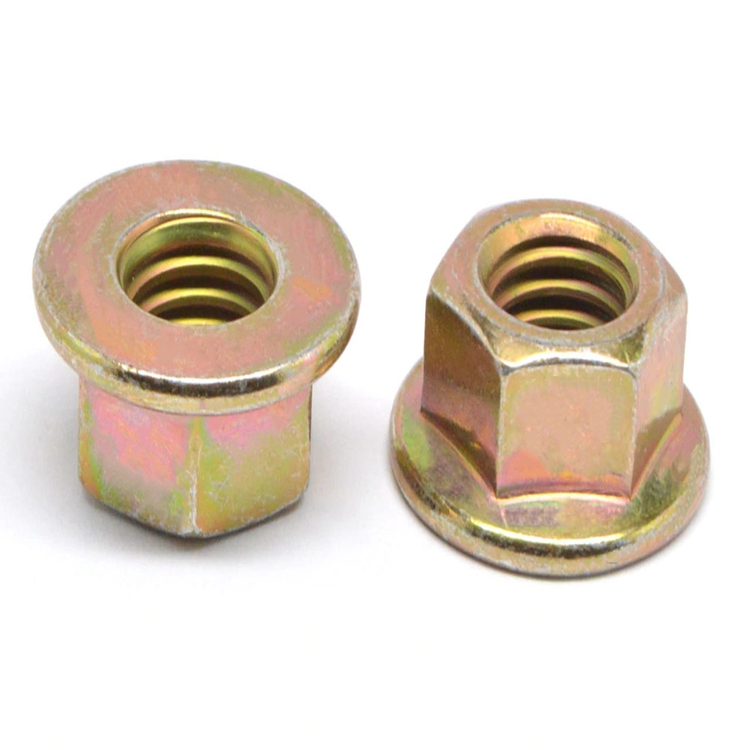stud bolt hex stud suppliers
Dec . 13, 2024 17:27 Back to list
stud bolt hex stud suppliers
Understanding Stud Bolt Hex Stud Suppliers
In the world of industrial fastening, stud bolts, particularly hex studs, play a critical role in ensuring the structural integrity of various applications. These specialized fasteners are widely used across industries such as construction, manufacturing, and automotive, where durability and precision are paramount. To effectively utilize stud bolts, it’s essential to understand what they are, their applications, and the suppliers that provide these vital components.
What is a Stud Bolt?
A stud bolt is a threaded rod used to secure and join two or more components together. Unlike standard bolts that have a head on one end and a threaded tip on the other, stud bolts are fully threaded along their length. This allows for versatility in fastening, offering the capability to accommodate different materials and sizes. Hex studs, specifically, are a variation designed with a hexagonal head that allows for easier handling and installation using standard wrench tools.
Types of Stud Bolts
Stud bolts come in various types, such as
1. Full Thread Studs These have threads running the entire length, providing maximum grip and flexibility in their use. 2. Partial Thread Studs These feature unthreaded sections that can improve alignment and load distribution. 3. Double-End Studs Often utilized in flanged connections, these have threads on both ends, providing secure fastening at multiple points.
The selection of stud bolt type largely depends on the application and the materials being fastened.
Applications of Stud Bolts
Stud bolts are essential in numerous applications, including
- Mechanical Engineering From engines to machinery, stud bolts are used to assemble components under high-stress conditions. - Construction In buildings and bridges, they secure structural elements, ensuring stability and safety. - Oil and Gas Industry High-pressure environments require reliable fastening solutions, and stud bolts are integral to piping and vessel connections. - Automotive Engaging various parts in vehicles, these fasteners maintain functionality and performance.
stud bolt hex stud suppliers

Choosing a Stud Bolt Supplier
When it comes to sourcing stud bolts, selecting a reliable supplier is paramount. High-quality stud bolts are crucial to ensuring safety and longevity in applications. Here are some key factors to consider when choosing a stud bolt hex stud supplier
1. Quality Standards The supplier should comply with internationally recognized quality standards, such as ISO or ASTM. This ensures that the stud bolts are manufactured to withstand the necessary loads and stresses.
2. Material Selection Different applications require different materials. Common materials for stud bolts include stainless steel, carbon steel, and alloy steel. A reputable supplier will offer a variety of materials to cater to specific needs.
3. Range of Sizes and Specifications Suppliers should provide a wide range of sizes and specifications, allowing customers to find the right fit for their needs.
4. Customization Options In industries where specific requirements exist, suppliers that offer customization can be invaluable. This may include bespoke lengths, coatings, or threading options.
5. After-Sales Support A strong after-sales service, including technical support and assistance with installation, is crucial for maintaining long-term customer relationships.
6. Reputation and Reviews Before committing to a supplier, it’s advisable to check reviews and testimonials from previous clients. A supplier with a strong track record is more likely to deliver quality products and service.
Conclusion
Stud bolts, particularly hex studs, are indispensable components in various industrial applications, offering reliability and efficiency in fastening. The choice of supplier can significantly impact the performance and safety of projects, making it essential to select a provider that adheres to high standards of quality and service. By understanding the types of stud bolts available and the importance of rigorous supplier selection, businesses can ensure that they are equipped with the right tools for any job—ultimately enhancing safety, performance, and longevity in their operations.
Latest news
-
Premium Phosphated Drywall Screws Supplier | Durable, Rust-Resistant
NewsAug.27,2025
-
Reliable Wire Bolts Suppliers | Quality Zinc Plated Fasteners
NewsAug.26,2025
-
Wire Bolts Suppliers: Durable & Reliable Fasteners for Every Project
NewsAug.25,2025
-
Premium Cabinet Bolts Supplier | Wholesale & Custom Solutions
NewsAug.24,2025
-
Reliable Axle Nuts Supplier | Quality & Precision Fasteners
NewsAug.23,2025
-
Durable Bolts for Lawn Mower Handle - Top Supplier & Manufacturer
NewsAug.22,2025
